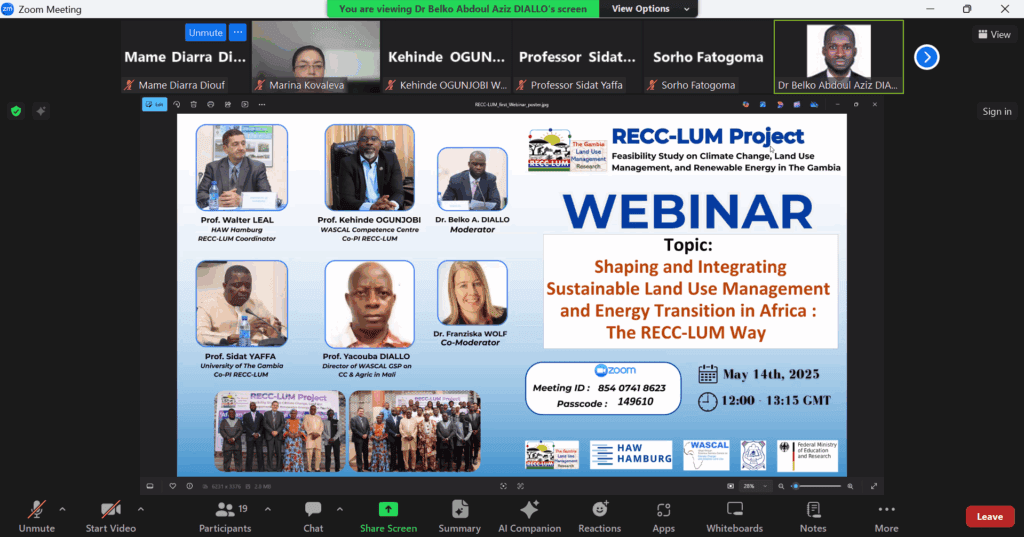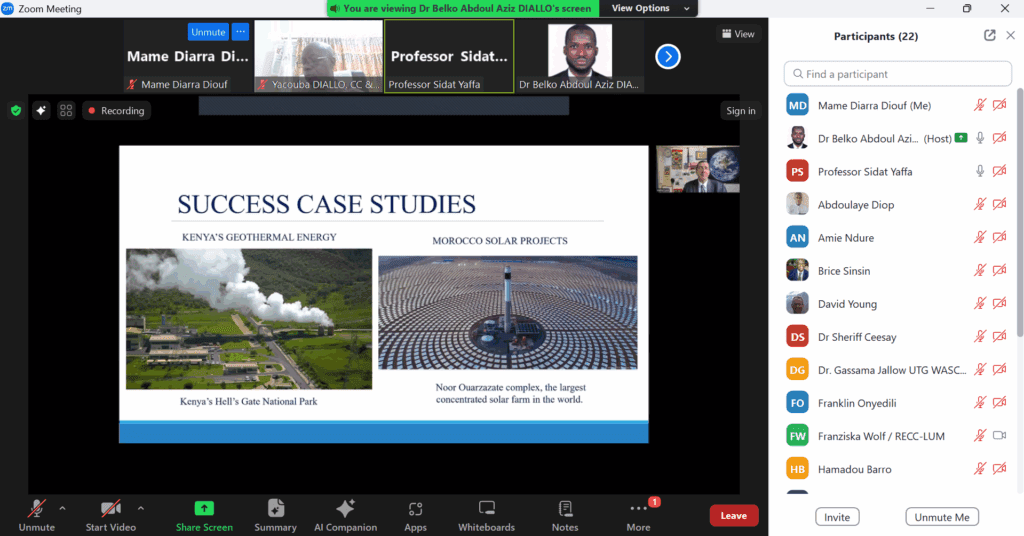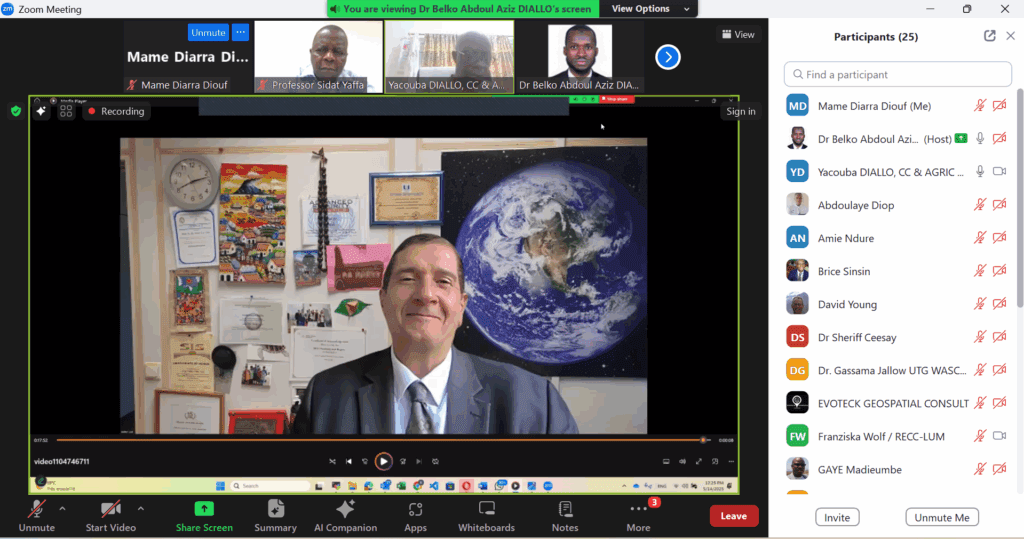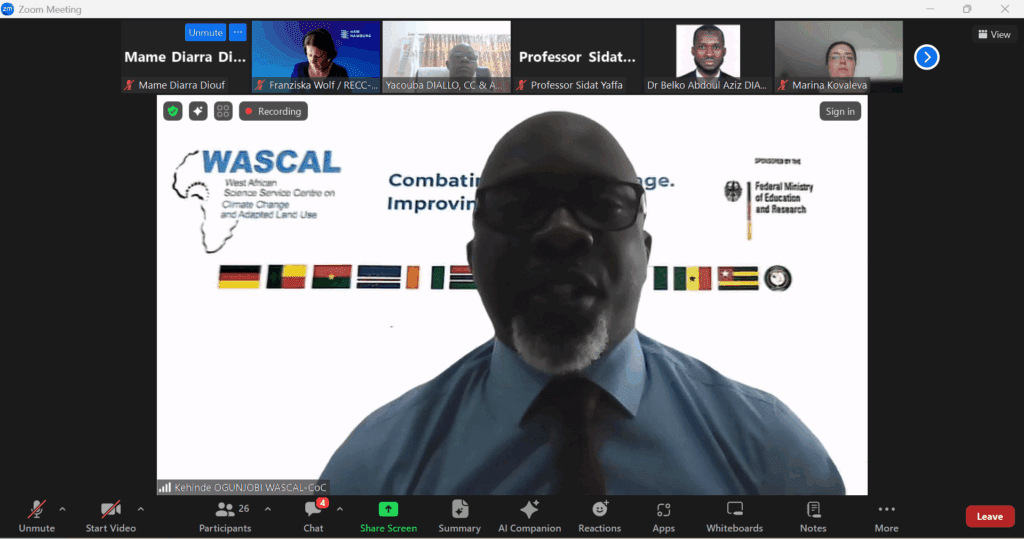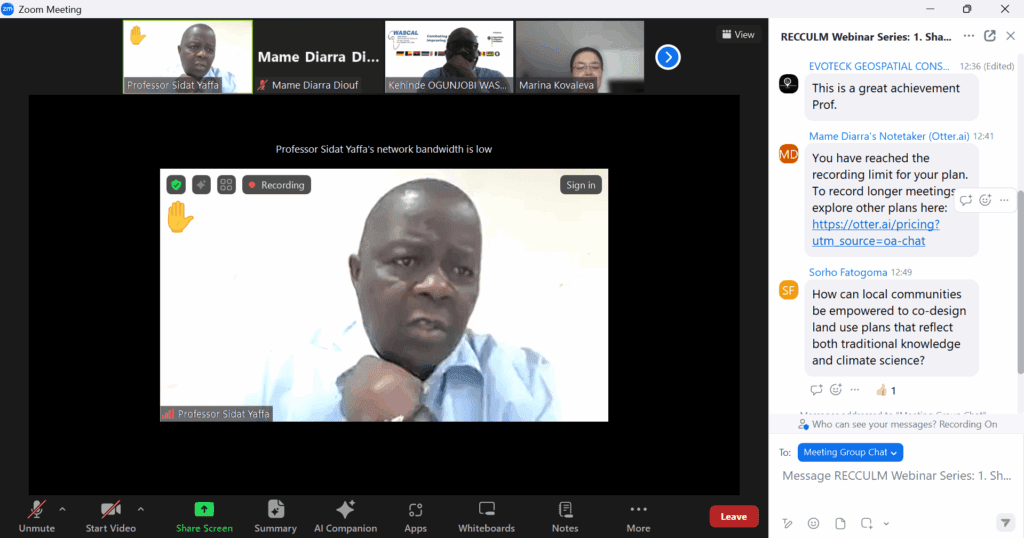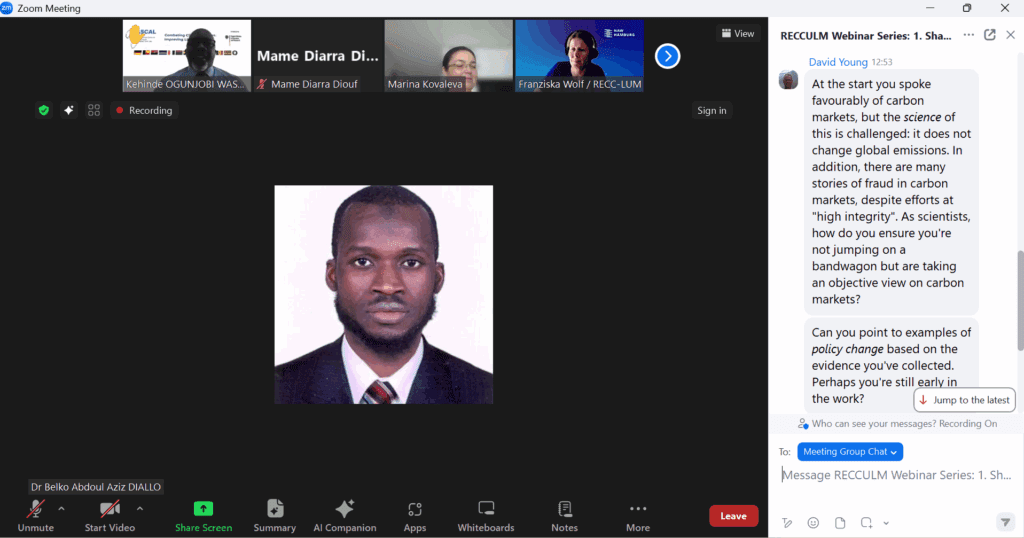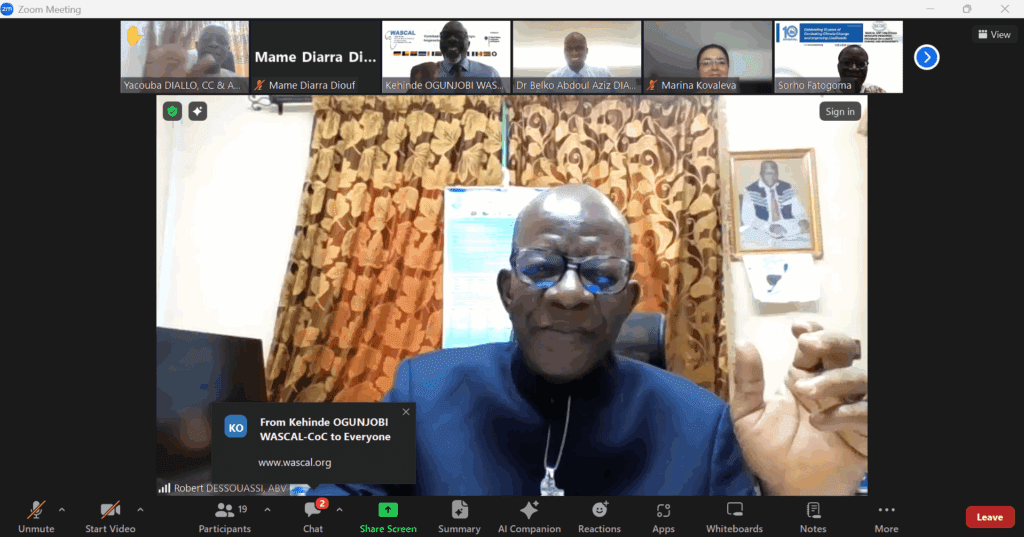The webinar brought together experts and stakeholders to explore how Africa can simultaneously address climate vulnerability and energy transition through integrated and sustainable land use management. The discussions highlighted Africa’s exposure to climate change, particularly due to erratic rainfall and dependence on rain-fed agriculture, while emphasizing its untapped potential in renewable energy, notably solar and wind.
The RECC-LUM project, funded by the German Federal Ministry of Education and Research, was central to the conversation. It aims to merge sustainable land use with renewable energy initiatives to foster climate resilience and economic growth. Successful pilot implementations in Kenya, Morocco, and The Gambia showcased the feasibility of community-driven, data-informed approaches. Emphasis was placed on technology transfer, education (e.g., a new master’s program at the University of the Gambia), and interdisciplinary collaboration.
Panelists underlined the necessity of aligning agricultural, energy, forestry, and water policies to prevent competing land-use priorities. Community empowerment emerged as a key theme, with examples from Gambian villages where residents co-designed land use plans and maintained solar-powered irrigation systems. The session also addressed the importance of citizen science and the emerging role of carbon markets in supporting sustainable practices.
Key action items included replicating successful pilot projects across Africa, closing data gaps through research, engaging policymakers, and investing in scalable climate solutions. The webinar concluded with a call for gender-sensitive approaches and an announcement of the next session, which will focus on gender dimensions in climate change and energy transition in West Africa.
